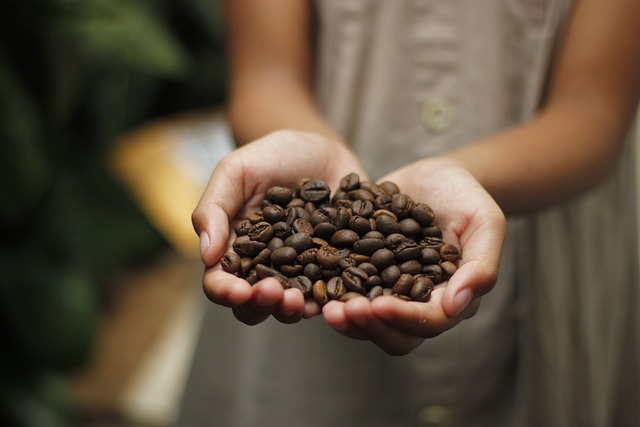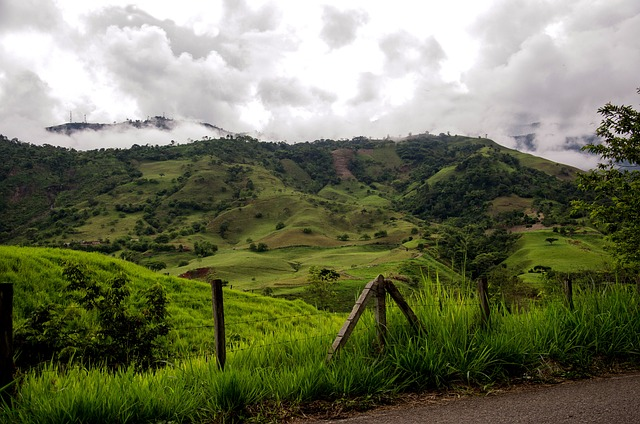
The Story of Ethiopian Coffee
Share
Ethiopian Coffee Highlights
-
Both local legend and historical accounts suggest that coffee, as we know it today, originated in what is today Ethiopia, in East-Central Africa. Islamic texts mention coffee going back hundreds of years.
-
Coffee came to the Americas in the early colonial days, but it didn't catch on until after the Revolutionary War, and to great extent during the industrial revolution of the 20th century.

The Ethiopian Coffee Origin Legend
Much like human origins, coffee beans are believed to hail from the heart of Africa.
Ethiopian coffee beans are truly the precursor to all coffee in the world! Local legend (and historical accounts) have it that coffee drinking started in this East-Central African nation...and possibly by accident.
According to Ethiopian legend, a local goat herder named Kaldi noticed that after his goats had eaten berries from a certain plant, they would become more energetic and have trouble sleeping.
Those plants were wild coffee trees.
He showed the local monastery the supposed effects of these berries, and suspicions arose that they had some kind of power. The monastery's authority tried making a drink with the berries, and after drinking it realized that he would feel more awake later into the night.
This tradition was ritualized into the Ethiopian coffee ceremony, and drinking coffee slowly evolved into the massively popular past-time it is today.
Where Did The Coffee Bean Come From? Ethiopia or Yemen (We Think)

The actual historical origin of coffee beans is blurry. We know that it was present in both Yemen and Ethiopia around the same time, and we suppose it has a single origin, but we don't know much else.
We know from Islamic accounts that coffee was known to Arabic people by the 15th century because of the role it played in religious ceremonies. It was exceptionally popular as a concentration aid when praying deep into the night. Coffee was so stimulating that it was banned many times in Islamic countries throughout the years! Islamic writings are actually some of the main records we have of the presence of coffee in the Arabian region.
But how did Arabic regions get ahold of coffee beans in the first place? As far as we know, it was introduced a few years earlier through Yemen as local authorities traded with Ethiopia. This single origin theory makes more sense when you learn that mocha coffee actually gets its name from Mocha, the primary port of Yemen, where coffee is believed to have first entered the Arabian peninsula.
Why Ethiopian Coffee Beans Grow Well and Taste Great
There are many reasons why Ethiopia produces great-tasting coffee. Many of the exceptional qualities of Ethiopian coffee, such as its floral aroma, complex flavor, and pleasant acidity depend on environmental factors that are present and prolific in Ethiopia.
Elevation Improves The Flavor Of Ethiopian Coffees

The plateaus where Ethiopian coffee beans are grown range between 1200 to 2200 meters above sea level. This high altitude means coffee beans develop in a thinner atmosphere with lower oxygen levels. Basically, as the plants struggle, they produce more complex flavors.
The cool temperatures at elevation also slow the maturation of the coffee beans, contributing to their flavor.
The extended growing period allows the sugars and organic acidity naturally present in coffee to develop more deeply. This results in the characteristic flavor of Ethiopian coffee.
Minerals And Soil Quality Help Too
Apart from elevation, the volcanic composition of the soil in the Ethiopian highlands is a big factor. The soil here is ideal for Arabica coffee plants, the primary species that's cultivated there.
Diverse geological features like volcanos and deep, fertile valleys contribute to the variety of soil types and is where Ethiopian coffee flavor emerges.
The Types of Coffee Plants:
The coffee bean as we know it can actually comes from different varieties of coffee plants, each with its own profile and growing temperament.
Arabica Coffee
The species Coffea arabica represents more than half of the global coffee production and is mostly cultivated at higher elevations. It's popular in countries like Ethiopia or Colombia, as it thrives in humid environments around the equator. Its abundance there is why we coined the term "coffee belt".
Arabica beans produce higher-quality coffee and are often cultivated as specialty varieties. In many regions, the methods with which farmers cultivate it have been honed for hundreds of years, as the trade has been passed down from generation to generation. When European settlers planted coffee around the world, they discovered it adapts to many different climates, meaning it made for a great colonial export.
Robusta
Coffea canephora is, in many ways, the opposite of arabica. Whereas arabica thrives in cool climates and high temperatures, Robusta benefits from low elevations and warm environments.
Many times it is planted in places where Arabica struggles to grow, so it's popular in countries with flat landscapes such as Brazil or certain African countries.
Robusta coffee beans tend to have a higher caffeine content along with a bolder, earthier flavor. This makes it popular for expresso blends, as mixing it with other varieties adds a woody punch to the cup.
Liberica, Excelsa, And Other Specialty Coffee Beans
Liberica coffee is one of the least commonly grown plants, cultivated mostly in West Africa and Southeast Asia.
Liberica coffee beans are radically different from other species: they're large, asymmetrical, and far more resilient to the environment and disease. They have a brighter flavor than Arabica and typically retain more of their natural acidity.
Excelsa coffee is known for being a kind of hybrid between the other major species. It is an exotic blend, with the brightness of Liberica and the earthiness of Robusta. It's described as having tart, wine-like notes with a fruity punch. It is grown in Southeast Asia and the Philippines.
If you're curious about unique coffees, we have a wide variety of blends and roasts. Our Burundi Muramvya for example, has a delicately bright flavor profile with notes of lemongrass. Its wet processing ensures it retains most of its natural acidic profile, as well as the essence of black tea it gets from the soil.
Ethiopian Coffee In the U.S.

The first coffee plant in the US landed in 1668 when either the Dutch or the British brought it to the East Coast. We don't know exactly who brought it here, but we know it first landed in what is now New York.
However, there's debate on where the first coffee house was established. Coffee houses were all the rage in continental Europe, as people who drank coffee instead of alcohol were more interested in stimulating conversation.
Nevertheless, the drink of choice for most Americans remained tea until 1773, when the Boston Tea Party forever changed the minds of the whole continent. After the beginning of the war for independence, drinking tea was seen as unpatriotic. Thomas Jefferson even went as far as to call coffee "the favorite drink of the civilized world." George Washington served coffee to all his guests.
Coffee production only increased in the Caribbean during that period, and the Dutch had already begun plantations in Southeast Asia.
Coffee consumption has been on the rise ever since, and after the war ended coffee remained the preferred drink of most Americans – to this day.
Philly Fair Trade's Ethiopian Coffee
The best Ethiopian coffee belongs to a specialty blend called Yirgacheffe, after the region where it's produced.
Known for its floral aroma and tangy acidity, this coffee is celebrated for its unique specialty flavors. It's also processed in washing stations, where the cherries are crushed to a pulp, and the beans are fermented before drying. This wet processing contributes to the bright aftertaste of the cup.
Our fair trade certified Ethiopian coffee, with notes of toasted marshmallow and honeyed grapefruit, is perfect for those with a sweet palate – or those just looking to try Ethiopian coffee for the first time!
